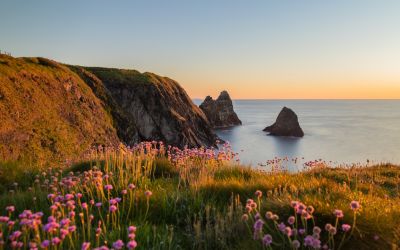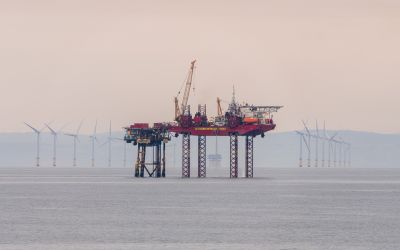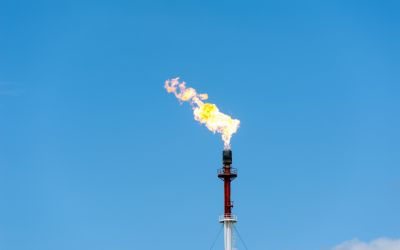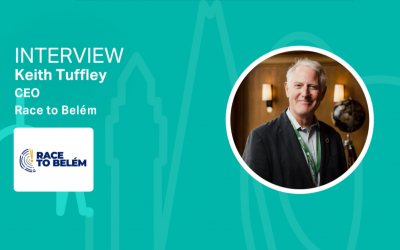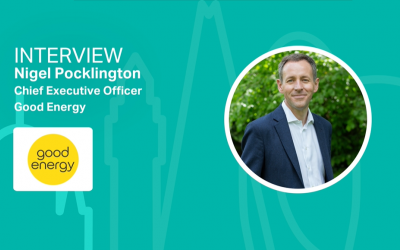Chris Hulatt, Octopus Group, on the recent trends and opportunities in the renewable energy sector
Chris Hulatt, Co-Founder of Octopus Group, discusses not only the economic opportunity offered by renewables post pandemic but also how investors can genuinely make a difference and spur a green recovery.
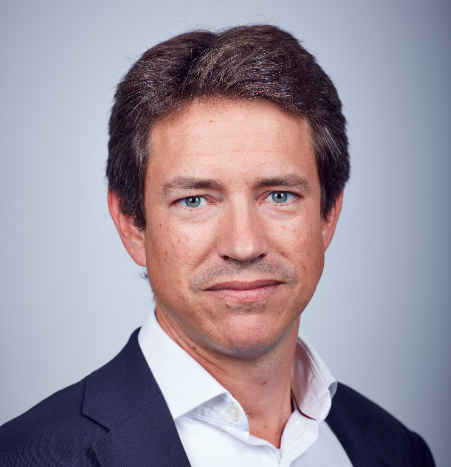
Following the UK Government decision to remove a block against onshore wind projects, coupled with a pledge to cut emissions by 2050, energy investors are increasingly looking to the UK. Chris Hulatt, Co-Founder of Octopus Group, discusses not only the economic opportunity offered by renewables post pandemic but also how investors can genuinely make a difference and spur a green recovery.
What are the trends seen from institutional investors in the renewables sector?
Investors want to put their money to work in a way that shows they are thinking about sustainability and net zero targets. But compelling financial factors also support the trend toward renewables. The challenge of finding yield is a key issue now and it’s pushing investors to look elsewhere.
The pandemic has impacted sectors within infrastructure, where in comparison renewables have held up really well. This has led investors to look for real assets with cash flow visibility and economic resilience. In this environment, renewables are an attractive option.
What is the long-term potential for renewables – will we get to a world where the vast bulk of our power comes from renewables?
Net zero targets are going to mean this is essential. The UK has shown great progress. We’ve decarbonised power generation here faster than anywhere in the G20; we’ve made more rapid progress than expected ten years ago. And the cost of wind and solar is falling – these will be the lowest-cost forms of generation.
People often say an energy system without a baseload supported by nuclear plants and other conventional energy sources isn’t possible. However, we are starting to see that it is possible to change when people consume power – so to a large extent the fluctuation in renewable energy generation can be absorbed.
What does your energy supply business, Octopus Energy offer the market?
Our energy supply business, Octopus Energy, offers an Agile tariff that tracks the wholesale price every half hour. So, when generation is plentiful, we can pass cheap prices onto our customers. Price signals shift consumer behaviour!
Even oil companies are changing. BP is stepping up its annual renewable investment from $500m to $5bn by 2030. BP now forecasts that ‘peak oil’ consumption will arrive in the early 2020s. In one scenario, oil demand doesn’t return to 2019 levels – a radical change.
What are the differences between buying operational assets and constructing new renewable assets?
We have always focused on constructing assets. In fact, most of the operational assets in our clients’ portfolios are ones we constructed. We started developing UK solar farms back in 2010, so we have a decade of experience. We are using that experience in a range of countries: we’re building wind and solar farms in European countries and have a presence in Australia.
You’ve got to get involved in overseeing the construction process, as having the right people can mitigate a lot of the risk. As you’d expect, investors do get rewarded for investing at this stage – over the life of the asset, the rate of return is enhanced, compared to buying an operational asset.
Where are the opportunities to build new renewable energy assets?
Renewables offer global opportunities, as pretty much every country intends to roll them out. The role for companies like Octopus is to link global capital flows with countries that are early in the transition from coal usage.
For us, it is also about having critical mass – we don’t want to own assets in dozens of countries – the aim is to achieve significant scale in every market we enter. Also, this gives us the ability to build portfolios of assets across countries that are in different stages of construction and operation and use different technologies to optimise risk.
We opened an office in Australia two years ago, and we now have 12 people there. The country has a large reliance on coal to generate its electricity and we want to change that. We’ve recently finished building and connecting Darlington Point, one of the largest solar farms in Australia, which will produce 325MW. This site was built without any government subsidies. We want to change the pessimistic forecasts that Australia will be burning coal for years to come, and instead replicate the trend we have seen in the UK over the past decade.
What can investors do to maximise the impact of their renewables investments?
If you want to have an impact, you need to get involved in building new assets, especially in countries with high coal usage. But impact can extend so much further than this and don’t forget that people increasingly care how their pensions and investments are deployed. Creating jobs, benefiting biodiversity and working with local communities are all examples of how investors can genuinely make a difference. We’re excited to be part of that.
Octopus is a leading alternatives asset manager in renewables, real estate and smaller companies. If you want to contact Octopus please email investorrelations@octopusinvestments.com or call +44 (0)207 131 3203.

